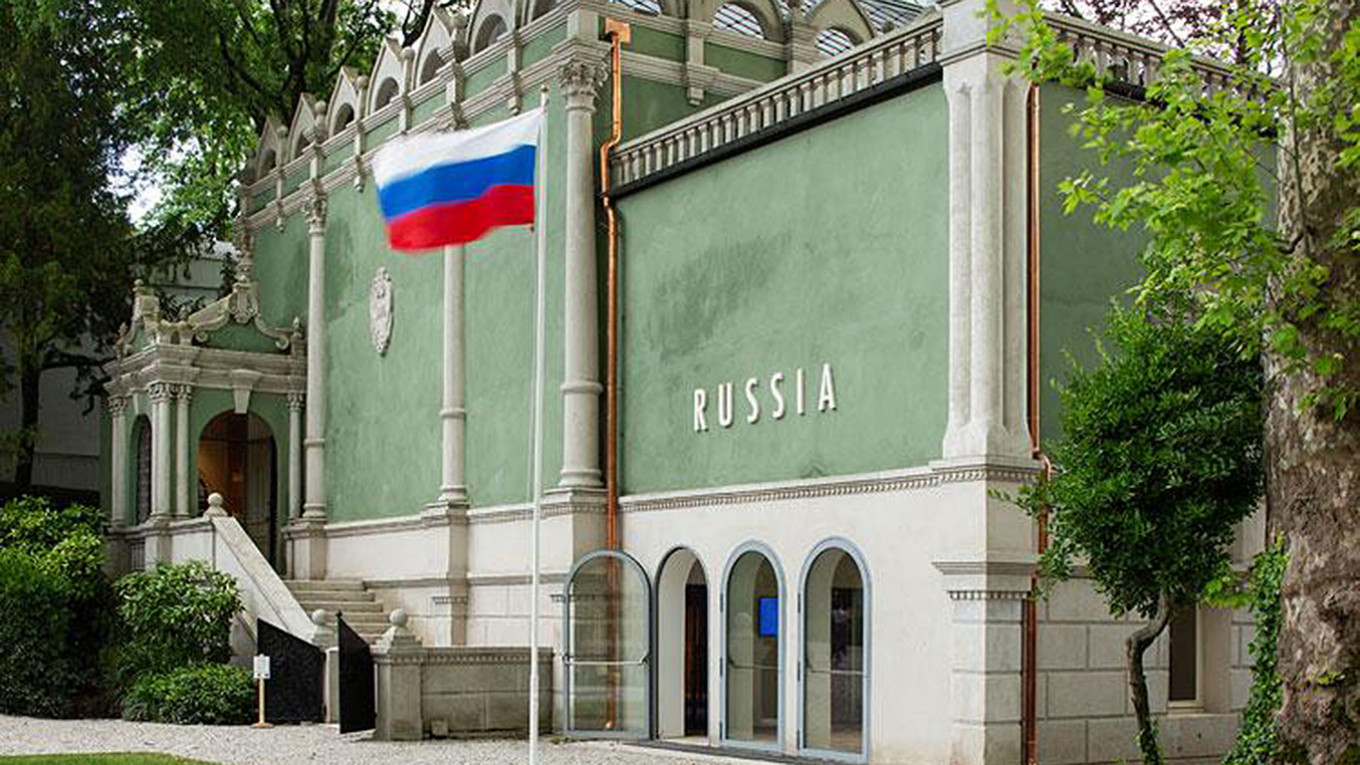The 2022 Venice Biennale, which opens on April 23rd, will no longer have Russian representation. Following the invasion of Ukraine, artists Kirill Savchenkov, Alexandra Sukhareva and curator Raimundas Malašauskas withdrew their participation for Russia’s national Pavilion.
On Sunday, in a joint post on social media, Savchenkov and Sukhareva wrote, “There is no place for art when civilians are dying under the fire of missiles, when citizens of Ukraine are hiding in shelters, when Russian protesters are getting silenced.” In a separate statement, curator Malašauskas seconded the initiative, stating that, “This war is politically and emotionally unbearable.”
Since its inauguration in 1914, the Russian pavilion of the Venice Biennale had only been closed three times: in 1922, between 1938 and 1954, and between 1978 and 1980.
The Ukrainian pavilion is also at risk of hanging a "closed" sign for this Biennale. But in this case, it’s not because of a protest by its protagonists, but because it would be impossible to carry out the assembly of the exhibition. The planned solo presentation of works by Pavlo Makov in Venice is in danger, as the press release of the Ukrainian Pavilion posted on its official Twitter account stated: “Presently, we are not able to continue working on the project of the pavilion due to the danger to our lives (…) We cannot confirm yet that our project will be completed, but we can promise that we will do everything possible to save unique artworks produced by Pavlo Makov and our big team specially for the upcoming biennial during the past 5 months.” Makov told The Art Newspaper that one of the curators of the Pavilion, Maria Lanko, successfully evacuated the work destined for the pavilion from Ukraine in the backseat of her car, which she was able to drive across the border into Poland.
There have been further consequences in the Russian arts field due to this war. The main show of the recently inaugurated cultural center of Moscow, GES-2, has been cancelled by its curator Ragnar Kjartansson. The exhibition, Santa Barbara – A Living Sculpture, was meant to run until March 13th, but Kjartansson has stopped the re-cast of the collective performance: “It is not possible to have this work when this horror begins,” he told the Icelandic National Broadcasting Service – Ríkisútvarpið, calling Russia a “fascist state.” This abrupt ending joins the halt of preparations for the next events scheduled at the Garage Museum, the most important museum of contemporary art in Russia. In a statement on its website, the team says they'll stop working “until the human and political tragedy that is unfolding in Ukraine ceases. We cannot support the illusion of normality when such events are taking place.” Exhibitions of works by Lydia Masterkova, set to open on March 16, and Anne Imhof (on April 5), are now on stand-by.
Many Russian artists are joining the protest on social media, like the AES+F collective that represented Russia at the 2007 Venice Biennale. They posted a black square on their Instagram account. Some have supported the initiative launched by Pussy Riot co-founder Nadya Tolokonnikov, an autonomous organization called Ukraine DAO that is raising funds for the Ukrainian charity Come Back Alive through NFT sales. As this article was being prepared for publication, the single edition NFT of the Ukrainian flag was valued at almost 3 million dollars.
A Message from The Moscow Times:
Dear readers,
We are facing unprecedented challenges. Russia's Prosecutor General's Office has designated The Moscow Times as an "undesirable" organization, criminalizing our work and putting our staff at risk of prosecution. This follows our earlier unjust labeling as a "foreign agent."
These actions are direct attempts to silence independent journalism in Russia. The authorities claim our work "discredits the decisions of the Russian leadership." We see things differently: we strive to provide accurate, unbiased reporting on Russia.
We, the journalists of The Moscow Times, refuse to be silenced. But to continue our work, we need your help.
Your support, no matter how small, makes a world of difference. If you can, please support us monthly starting from just $2. It's quick to set up, and every contribution makes a significant impact.
By supporting The Moscow Times, you're defending open, independent journalism in the face of repression. Thank you for standing with us.
Remind me later.







